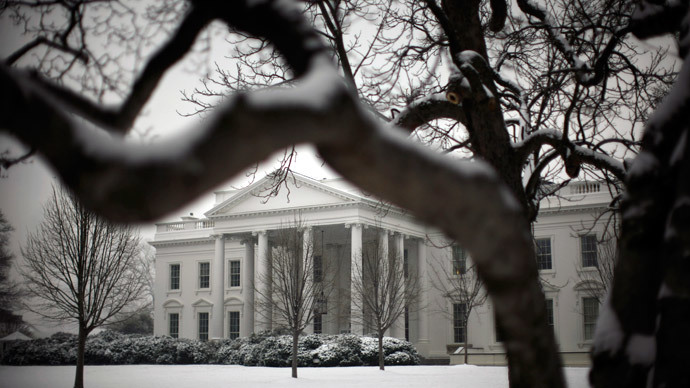White House to explain changes to NSA surveillance

“Significant progress” has been made with regards to reforming the National Security Agency’s intelligence gathering practices, a White House official said, adding that changes to the NSA will be described further in a forthcoming report.
The White House had planned on revealing updates on proposed intelligence reforms this week, the National Journal reported on Thursday, exactly a year after US President Barack Obama announced plans to implement changes in the wake of the unauthorized NSA disclosures attributed to former contractor Edward Snowden in June 2013. Plans to release those details one-year-to-the-day after the president urged reform during a January 17, 2014 address have been hindered, however, and an administration official told the Journal’s Dustin Volz that the public is now expected to be provided with the update before the end of this month.
Deputy press secretary Shawn Turner did not offer specifics, but told the Journal that the updates have not previously been acknowledge.
"I guarantee you that there will be some things here that are not already out in the public," Turner said. "What you'll see is that the intelligence community has made significant progress toward our goal, toward the administration's goal, of protecting civil liberties and privacy while making sure that the intelligence community has the tools it needs to safeguard our national security."
Scoop: Obama administration to announce new updates to NSA reform efforts by end of month http://t.co/R0RyhPnCQH
— Dustin Volz (@dnvolz) January 15, 2015
During his address last January, Pres. Obama said he was “ordering a transition that will end the Section 215 bulk metadata collection program as it currently exists,” changing the government operation that allows the intelligence community to compel telecommunication providers for telephone records en masse “and establishes a mechanism that preserves the capabilities we need without the government holding this bulk metadata.”
"The reforms I'm proposing today...should give the American people greater confidence that their rights are being protected, even as our intelligence and law enforcement agencies maintain the tools they need to keep us safe."
Notwithstanding the president’s endorsement, a legislative attempt at rewriting the rules for metadata collection and storage by way of Congress came two votes short of advancing when the USA Freedom Act failed in the Senate in November.
According to Volz, however, the forthcoming report will indeed include details about what’s been accomplished as far as adjusting policies for metadata collection goes, along with information concerning a proposed technological solution to the dragnet surveillance issue described in a report released on Thursday by the National Research Council. That report – assembled in response to the Presidential Policy Directive 28 the White House issued one year ago in concert with Obama’s Jan. 17 remarks – concluded that “no software-based technique can fully replace the bulk collection of signals intelligence, but methods can be developed to more effectively conduct targeted collection and to control the usage of collected data.”
The report, expected to be made available within the next two weeks, will reportedly show how the intelligence community’s operations have changed during the last year, specifically in response to the Jan. 2014 presidential policy directive and the recommendations of two review groups.












